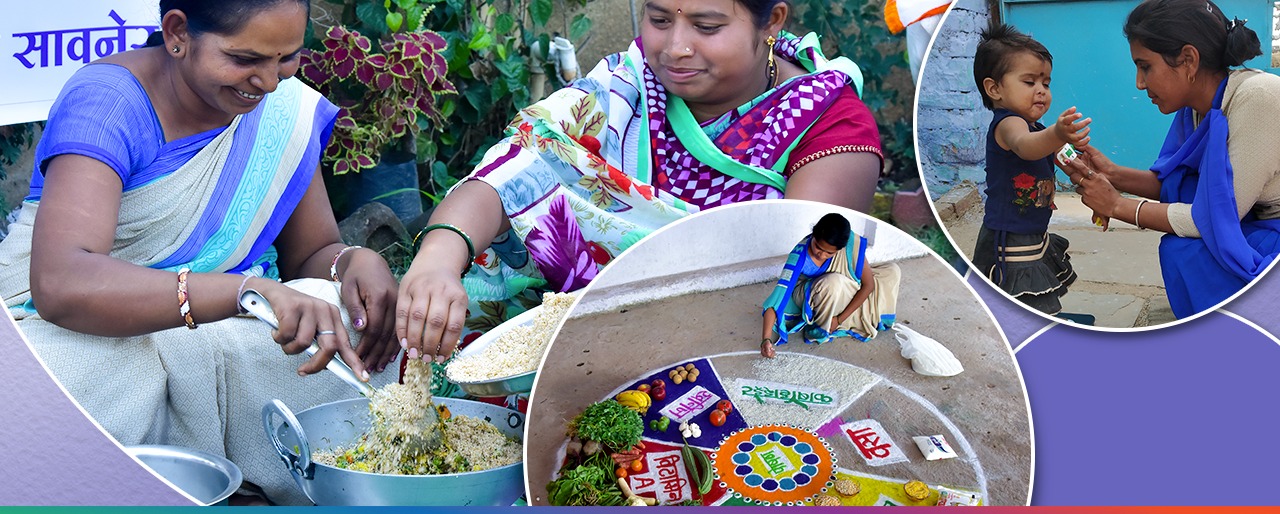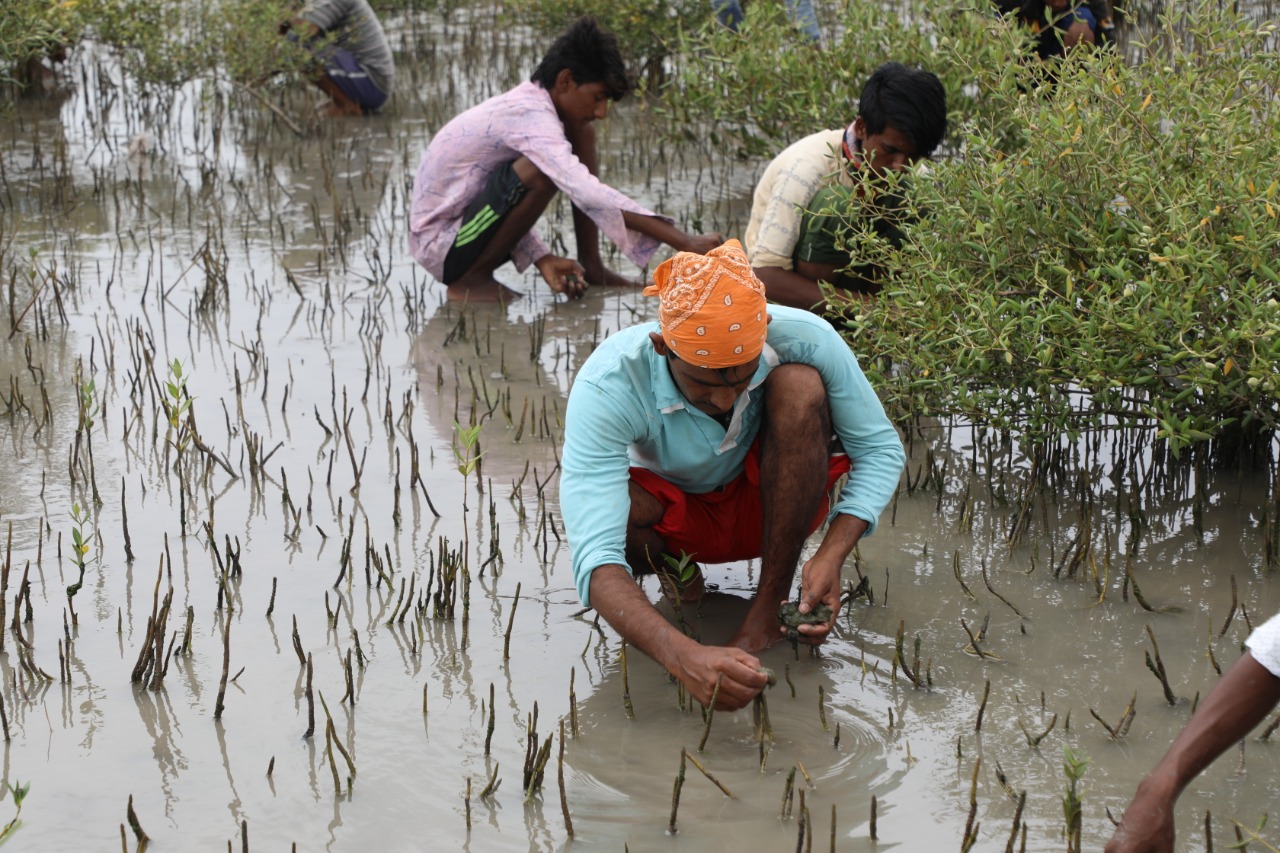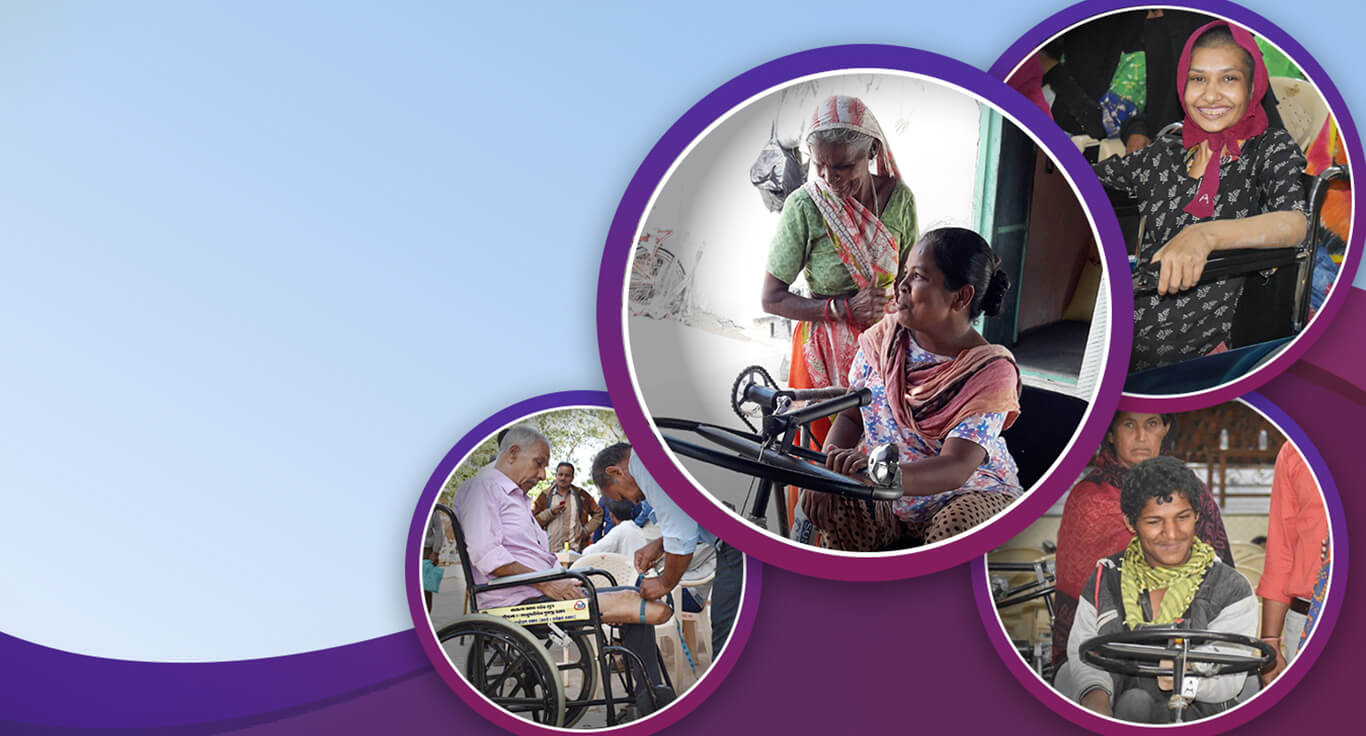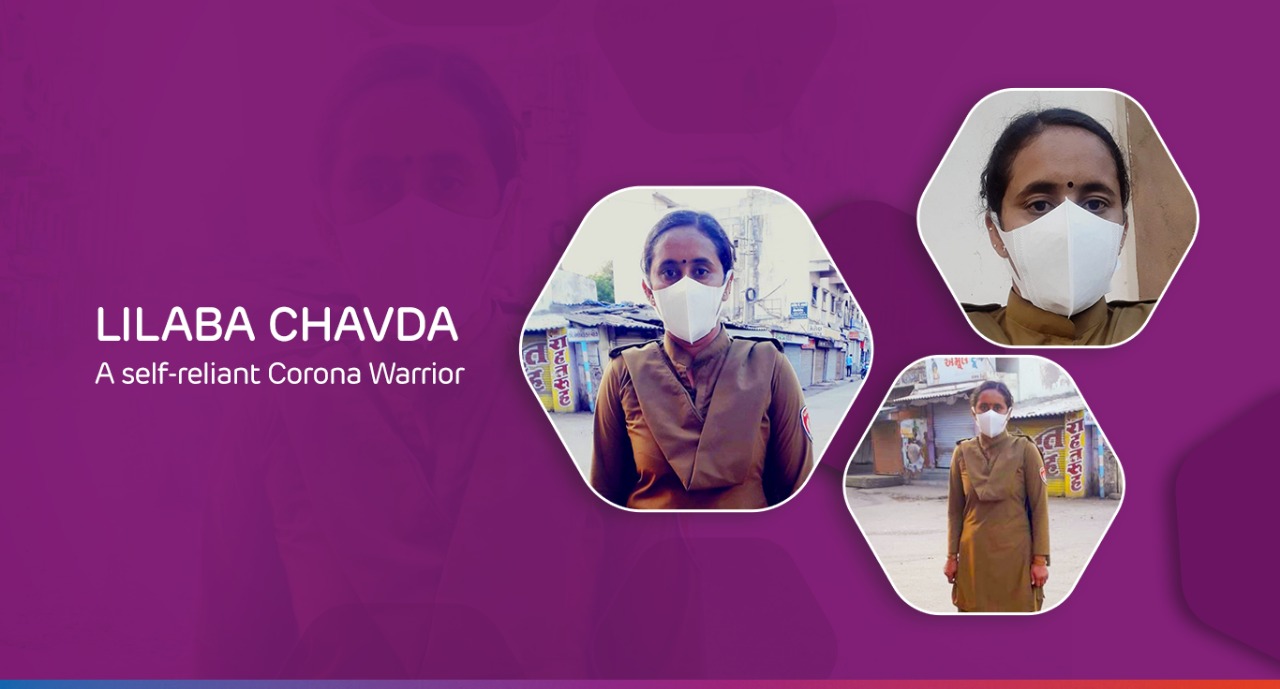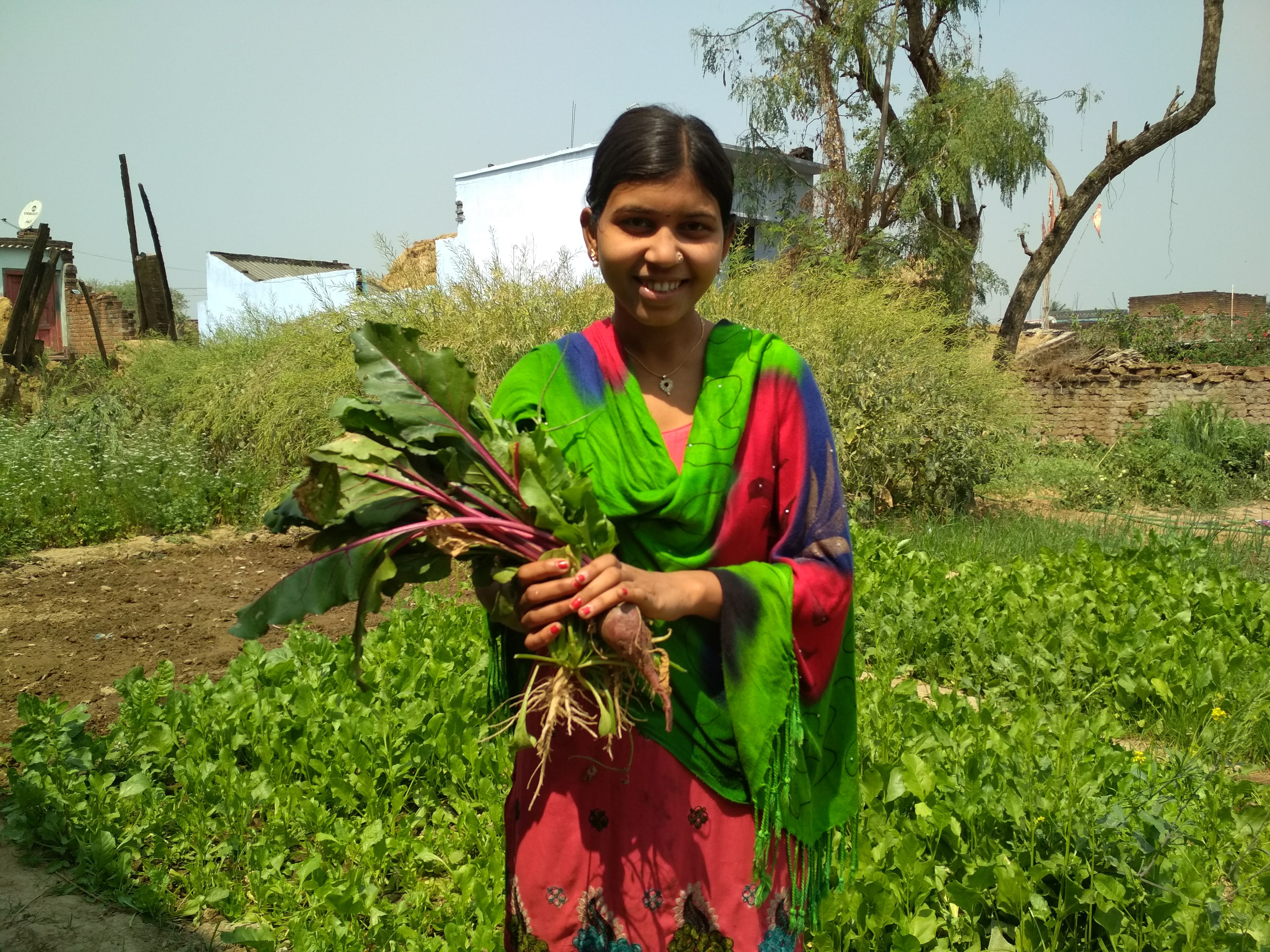
To meet the 2025 global nutrition targets, we must focus on actions that yield maximum impact
I want to begin by sharing Gro Harlem Brundtland’s words – “Health is the core of human development”. Echoing this sentiment is Adani Foundation’s Fortune SuPoshan project which integrates community healthcare, nutrition, education, sustainable livelihood generation and women empowerment across various sites through CSR in India. Nutrition is central to the Sustainable Development Goals (SDGs) and at least 12 of the 17 SDGs include indicators relevant for nutrition.
The Global Nutrition Report 2020 calls for a pro-equity agenda that mainstreams nutrition into food systems and health systems. With less than five years left to meet the 2025 global nutrition targets, we must focus on actions that yield maximum impact. As per the report, India is “on course” to meet two targets for maternal, infant, and young child nutrition (MIYCN) i.e. exclusive breastfeeding and stunting. 58.0% of the infants aged 0 to 5 months are exclusively breastfed and 34.7% of children under 5 years of age are stunted, which is higher than the Asia region’s average of 21.8%.
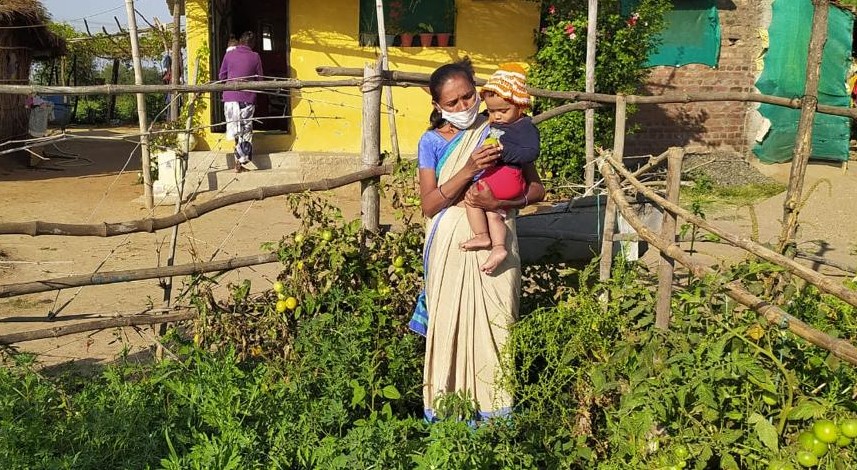
Adani Foundation promotes the use of local, seasonal foods based on 3As – availability, accessibility and affordability
Tackling injustices in food and health systems is challenging – poor diets and resulting malnutrition are great societal pressures, causing vast health, economic and environmental burdens. Recognizing nutrition as the catalyst that can change the face of India for generations to come, the Adani Foundation has prioritized it. As the corporate social responsibility (CSR) arm of the Adani Group, it has steadfastly pursued the mission of good nutrition to promote holistic community development and reached 5 lakh beneficiaries.
Fortune SuPoshan promotes the use of local, seasonal foods to combat malnutrition and anaemia in the underprivileged sections of the society based on 3As – availability, accessibility, affordability. This includes bringing a sustainable change in cooking and food consumption habits through community health initiatives. The project endeavours to instil a sense of ownership in people – especially in women – towards their nutritional status and overall well-being.
This is done by SuPoshan Sanginis, ie rural healthcare volunteers, who are trained to deliver simple actionable messages in alignment with the needs of infants, children, adolescent girls, pregnant women and lactating mothers. They encourage appropriate child rearing and feeding practices while providing a lucid understanding of child development.
Let me narrate a heart touching story from Mathavadi – a remote village in Narmada district’s Garudeshwar block. Traversing a hilly terrain through undulated paths is not easy but that doesn’t hamper SuPoshan Sangini Kiranbai Tadvi. Every single day, she finishes household chores and dresses up in her blue uniform saree. With a SuPoshan kit on her back, she ventures out to visit households in her designated area.
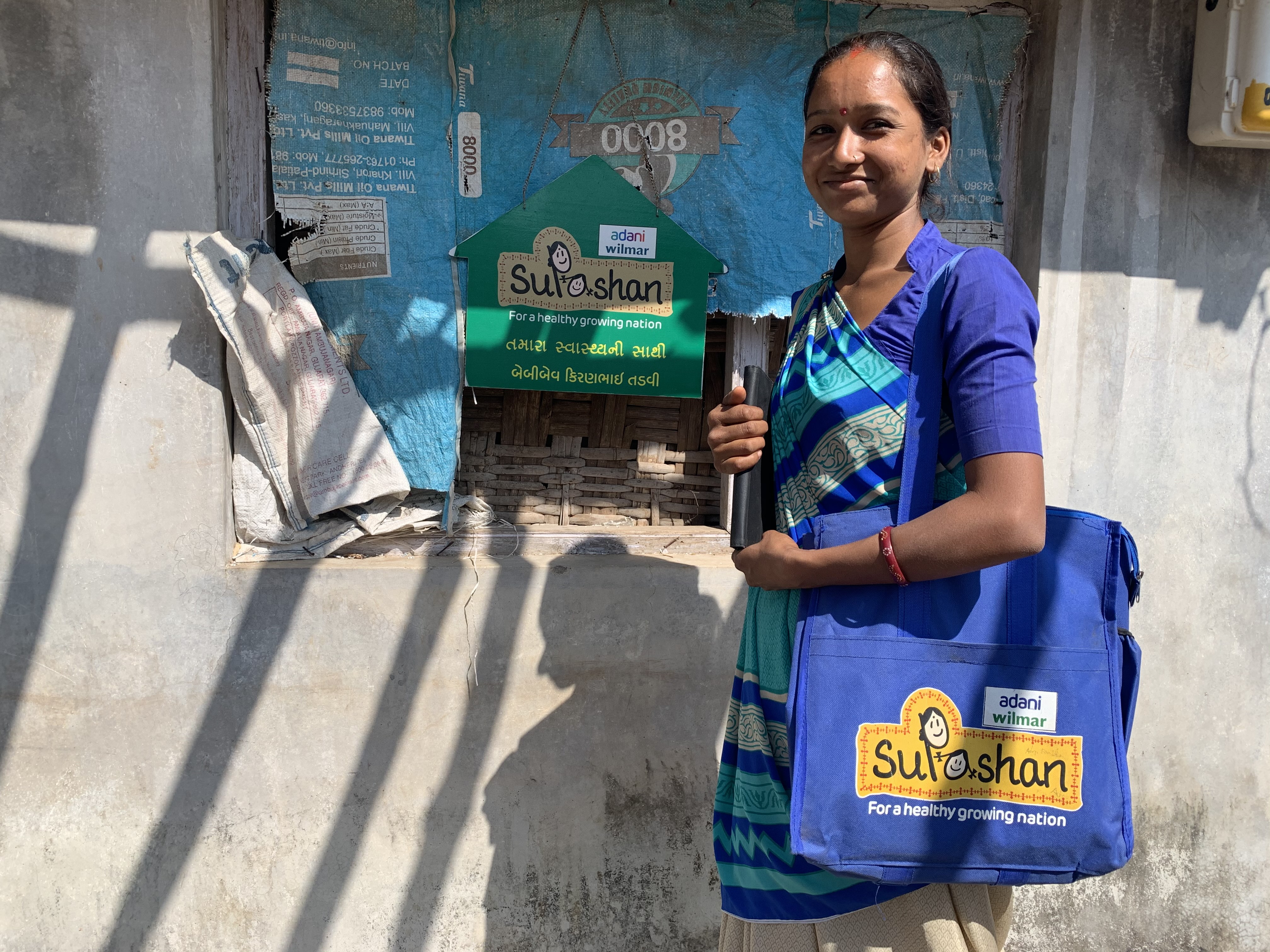
SuPoshan Sangini Kiranbai Tadvi from Mathavadi village in Narmada district (Gujarat)
During one such home visit in January this year, Kiranbai was assessing 18-month-old Suhani – Sangita Tadvi’s third child. On entering the height and weight in her digital device she saw that Suhani fell under the moderate wasting category. Her conversation with the mother and other family members revealed that their meals lacked essential nutrients despite the availability of many local and seasonal foods that the family could afford – Suhani’s father works as a security guard for a reasonable income. Blame the lack of knowledge, ignorance or excessive commercialization but traditional foods and comprehensive cooking methods have taken a back seat. There is a clear link between household characteristics and infant/young child feeding practices.
Our Sangini resolved to not let Suhani fall further into severe wasting category. She took the lead to plan the next course of action after quickly consulting the project team – at Narmada in all the 5 blocks, the team members are fully focused on spending time in the household kitchen of the beneficiaries. After checking the family’s taste preferences, Kiranbai decided to make theplas. From the adjoining Poshan Vatika (kitchen garden) developed by the family with guidance from Adani Foundation, the Sangini along with the mother plucked fenugreek, coriander and spinach leaves.
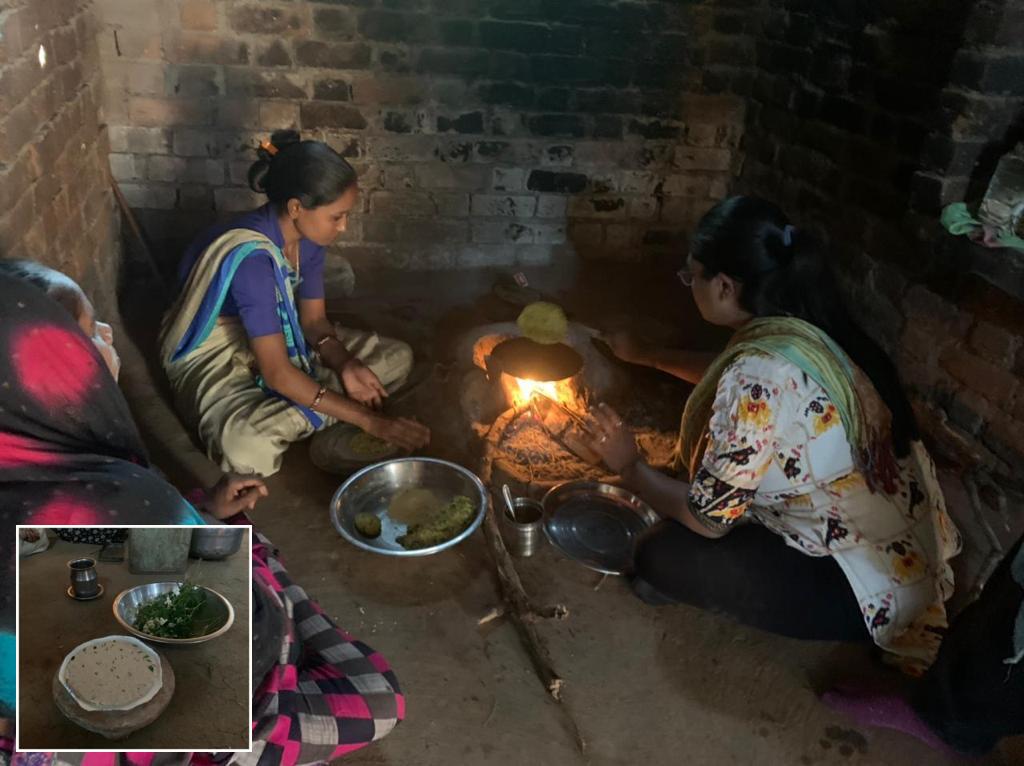
Project SuPoshan team members are fully focused on spending time in the beneficiaries' kitchen
To the Take Home Ration (THR – bal shakti), Kiranbai added jowar flour, wheat flour, ghee, salt, sesame seeds and a cup of chopped greens. Using water, curd and other cooked vegetables from the previous meal, she prepared a soft dough while explaining to the mother the immense nutritional value of each ingredient for children’s growth. She then took a playful Suhani in her lap, caressed her and fed her two theplas. When facts are supported with concern, care and reasoning, the acceptance level multiplies. She counselled Sangita to incorporate dietary diversity and shared more recipes from the project’s recipe book. The Sangini’s commitment towards the nutritional status of her three children filled the mother with gratitude.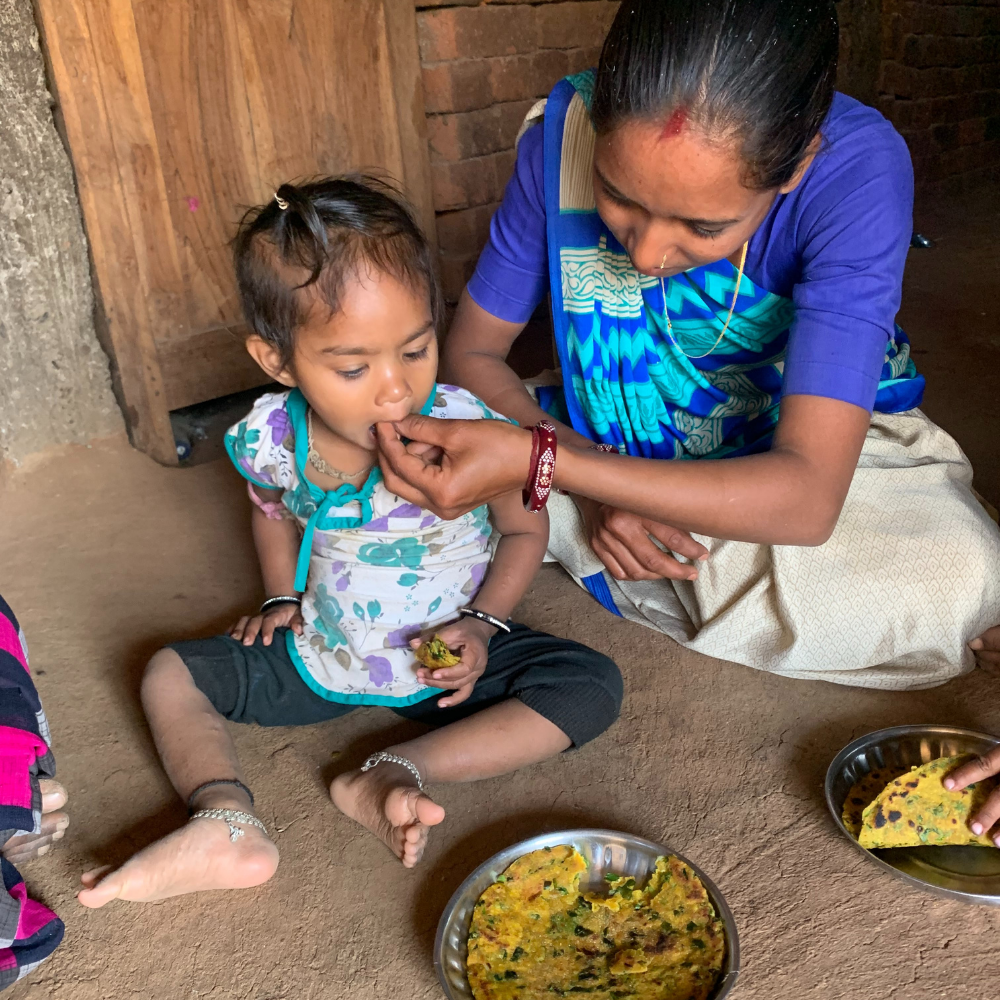
When facts are supported with concern, care and reasoning, the community members' acceptance level multiplies
This story is representative of a revolution of sorts that the project teams have ushered by entering the beneficiaries’ kitchens. They are challenging mind sets and giving home-grown solutions that show visible, quantifiable impacts in people’s nutritional status over a period of time. Through thorough cooking demonstrations that involve proper washing, cleaning, soaking techniques and information about right combination of foods for proper absorption in the body, the SuPoshan teams are encouraging sustainable living through behavioural change.
The CSR initiatives by Adani Foundation acknowledge that health and nutrition are human rights and that healthy populations are a major prerequisite for productive economies. I would sum up with another quote by Gro Harlem Brundtland – “The dual scourge of hunger and malnutrition will be truly vanquished not only when granaries are full, but also when people's basic health needs are met, and women are given their rightful role in societies.”
Kavita Sardana- Advisor (Health & Nutrition), Adani Foundation

